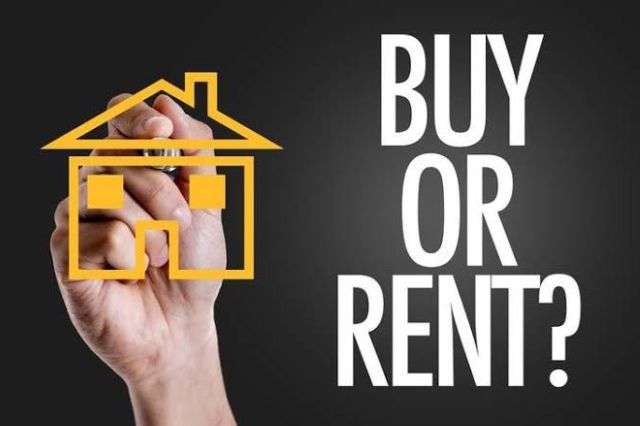Property Investment: Key Benefits of Buying vs. Renting
Homeownership is prioritized highly by the majority of individuals in the US. However, for an investor wishing to enter the real estate market, deciding whether to invest in residential or commercial property is not an easy decision.
The choice between renting and buying significantly impacts your present and future goals, lifestyle, and financial stability. While renting provides flexibility, monthly payments, and minimal maintenance costs, owning a property gives you a sense of security.
But each has its share of drawbacks in addition to advantages. This article discusses the key benefits of buying versus renting and other valuable information.
Key Benefits of Buying vs. Renting
- Building Equity
Building equity is by far the most significant advantage of home ownership. This represents your proportion of the home’s value. Renting a property does not result in the creation of any equity that you can add to your asset portfolio. One may argue that renting instead of buying is the same as tossing money away. Even if you buy a house and then decide to move, the resale value can be more than the price you paid initially.
The average person’s home represents their most important possession and the most significant purchase they will ever make. So, you have access to the home’s value, which can rise over time with proper maintenance and regular market appreciation. The tax benefits of homeownership also benefit your heirs. They can inherit your house at its increased value and decide whether to live there, sell it, or keep it as an investment property. You can trust Bay Property Management Group Northern Virginia to guide new investors in managing a profitable income property.
- Risk Capital
Investors shouldn’t consider their property a stock market or the quickest route to wealth. However, the economy’s risk may catch you off guard, and suddenly, the economy’s graph starts to bloom. As a result, real estate prices began to climb more quickly and profitably.
The other option to connect a portion of your portfolio to shifting economic growth is through home equity. You can use that equity even if you require significant money. Every time you make a mortgage payment on your home, you increase its value since the house you buy generates equity. The value of the home rises as you accumulate equity. As a result, you might expect to make a profit if you intend to sell the house.
- Mortgage Rates Remain Stable While Rents Rise
Your mortgage payment will never change if you get a fixed-rate mortgage for a home. However, their rent is subject to annual increases unless a renter lives in a rent-controlled building or community. Because the mortgage payment is the majority of the owner’s housing payment, this gives a great deal of budget stability.
Regarding other costs, owners and renters have insurance. However, insurance isn’t essential for renters as it is for owners, and the fee can vary significantly yearly. And, whereas owners pay property taxes that renters do not, and property taxes might grow as the value of the home increases, this fee is tax deductible.
- Home Appreciation and Tax Benefits
Homeownership has numerous financial advantages. While the procedure can be more expensive, there are some tremendous long-term economic benefits, such as house appreciation. In addition, when you buy a home, you become the property’s sole owner, which you might appreciate over time. In some cases, this is a fantastic opportunity to secure long-term wealth.
However, it depends primarily on the location of your home and how well it has been maintained throughout time. Also, while purchasing a home is likely to be one of the most expensive investments you’ll make, there are some significant financial benefits, such as tax breaks. Home mortgage interest, property taxes, and refinancing points are the most common tax deductions.
4 Types of Loans for First-Time Home Buyers
- USDA Loans
Despite being named after the United States Department of Agriculture, USDA loans are not only for farmers. Instead, USDA loans are designed to promote rural development.
According to the USDA, 97% of US territory is classified as “rural.” Many tiny villages and suburbs of major cities are considered rural. If you qualify for a USDA loan, there are numerous advantages. There are also certain things to be aware of, such as the fact that there is a no-down-payment option available, as well as competitive interest rates.
- Conventional Loans
Unlike an FHA loan, a traditional mortgage loan is not guaranteed by the federal government. So, instead of requiring a 20% down payment for a primary residence, most lenders require a 30% down payment for an investment property.
Furthermore, more significant credit requirements reflect the necessity for investors to have the financial resources to meet their current obligations while also taking on the additional property. As a result, lenders will thoroughly examine the investor’s existing assets and income to ensure they can make the required monthly payments.
- Home Equity Loans
If you already own a home and have equity, you can use it to finance future real estate purchases or renovations. This could be accomplished through a home equity loan or a cash-out refinance. Depending on your unique circumstances and lender, borrowing up to 80% of the property’s equity may be achievable.
You can then use this considerable money to buy an income property. These solutions, however, come with substantial implications for investors. For example, refinancing extends the length of the first mortgage. As a result, owners end up paying more in interest over time.
- Hard Money Loans
If investors want to avoid the traditional loan process, hard money loans are possible. These loans, also known as private mortgages, are a fantastic option for investors with less-than-perfect credit. However, with fewer qualification requirements comes a cost for investors. In addition, hard money loans typically have higher interest rates. This is because they are based on the quick-sale value of an existing borrower-owned property.
Final thoughts
Finally, whether you buy or rent a home is a matter of personal desire and financial strength. It all comes down to your discretion. Your first property can be purchased as an investment. Consider the factors mentioned above before deciding to buy or rent, such as how much flexibility you prefer and whether you are willing to accept the responsibility of homeownership, among others.






